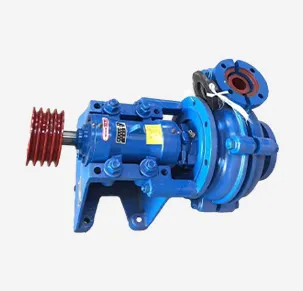Italian
- Afrikaans
- Albanian
- Amharic
- Arabic
- Armenian
- Azerbaijani
- Basque
- Belarusian
- Bengali
- Bosnian
- Bulgarian
- Catalan
- Cebuano
- Corsican
- Croatian
- Czech
- Danish
- Dutch
- English
- Esperanto
- Estonian
- Finnish
- French
- Frisian
- Galician
- Georgian
- German
- Greek
- Gujarati
- Haitian Creole
- hausa
- hawaiian
- Hebrew
- Hindi
- Miao
- Hungarian
- Icelandic
- igbo
- Indonesian
- irish
- Italian
- Japanese
- Javanese
- Kannada
- kazakh
- Khmer
- Rwandese
- Korean
- Kurdish
- Kyrgyz
- Lao
- Latin
- Latvian
- Lithuanian
- Luxembourgish
- Macedonian
- Malgashi
- Malay
- Malayalam
- Maltese
- Maori
- Marathi
- Mongolian
- Myanmar
- Nepali
- Norwegian
- Norwegian
- Occitan
- Pashto
- Persian
- Polish
- Portuguese
- Punjabi
- Romanian
- Russian
- Samoan
- Scottish Gaelic
- Serbian
- Sesotho
- Shona
- Sindhi
- Sinhala
- Slovak
- Slovenian
- Somali
- Spanish
- Sundanese
- Swahili
- Swedish
- Tagalog
- Tajik
- Tamil
- Tatar
- Telugu
- Thai
- Turkish
- Turkmen
- Ukrainian
- Urdu
- Uighur
- Uzbek
- Vietnamese
- Welsh
- Bantu
- Yiddish
- Yoruba
- Zulu
Telephone: +86 13120555503
Email: frank@cypump.com
Dic . 05, 2024 15:33 Back to list
pipeline injection pump
Understanding Pipeline Injection Pumps An Overview
In the ever-evolving realm of industrial processes, pipeline injection pumps stand as crucial components, facilitating the efficient transfer of fluids in various applications. These pumps are designed to inject fluids into pipelines, ensuring that a consistent and precise flow is maintained. This article delves into the mechanics, applications, and the importance of pipeline injection pumps in modern industries.
What is a Pipeline Injection Pump?
A pipeline injection pump is a type of positive displacement pump engineered to inject specific quantities of liquids into a pipeline system. The primary purpose of these pumps is to add chemicals, fuels, or other fluids to a pipeline without disrupting the overall flow. This is essential in processes like chemical dosing in wastewater treatment, enhancing oil recovery in petrochemical applications, and ensuring that various additives are mixed adequately in fluid transport systems.
Key Components and Working Principle
The functionality of pipeline injection pumps is rooted in a few core components the pump body, the motor, the injection mechanism, and control systems. Typically, pipeline injection pumps are either mechanically driven or electronically controlled.
1. Pump Body This houses the internal mechanisms and is often made from corrosion-resistant materials to withstand the harsh conditions of various fluids. 2. Motor The motor powers the pump, enabling it to draw in the fluid and force it into the pipeline. Variable speed motors are commonly used to adjust the flow rate according to the process requirements.
3. Injection Mechanism This is central to the operation, as it dictates how the fluid is introduced into the pipeline. Systems can be designed for batch injection or continuous flow.
4. Control Systems Advanced pipeline injection pumps are equipped with control systems that monitor the pressure, flow rate, and chemical composition, ensuring optimal performance and safety.
The working principle is relatively straightforward. The pump draws the fluid from a storage tank and injects it into the pipeline at the desired rate. By maintaining consistent pressure and flow, the pump allows for accurate dosing and mixing of additives, which is vital for maintaining the quality of the transported fluids.
Applications Across Industries
Pipeline injection pumps are utilized across numerous sectors, including
pipeline injection pump

- Oil and Gas These pumps are integral to Enhanced Oil Recovery (EOR) techniques, where specific chemicals are injected to improve oil extraction
.- Water Treatment In wastewater treatment plants, injection pumps add chemicals like chlorine or coagulants to ensure water purification.
- Chemical Manufacturing They provide precise dosing of reactants in chemical synthesis processes, which is crucial for achieving desired product qualities.
- Food and Beverage In the food industry, these pumps are used to inject flavors, preservatives, and other additives into products during processing.
Advantages of Pipeline Injection Pumps
The benefits of using pipeline injection pumps are manifold
1. Accuracy They permit precise control over the volume of injected fluids, ensuring optimal chemical dosing without wastage.
2. Efficiency The continuous or automated functionality of pipeline injection pumps enhances overall operational efficiency, reducing manual labor.
3. Versatility They can handle a wide range of fluids, from viscous substances to corrosive chemicals, making them adaptable across various applications.
4. Safety Modern injection pumps come equipped with safety features that prevent over-pressurization and leaks, which are critical in ensuring safe operations in high-risk environments.
Conclusion
As industries continue to innovate and evolve, the role of pipeline injection pumps will only grow in significance. Their ability to facilitate the seamless integration of various fluids into pipeline systems allows for enhanced productivity and improved product quality. Understanding the mechanisms and applications of these pumps is essential for engineers and operators who strive for efficiency and safety in their processes. Thus, pipeline injection pumps remain a backbone of many industrial operations, paving the way toward a more sustainable and efficient future.
-
Horizontal Split Case Pump with GPT-4 Turbo | High Efficiency
NewsAug.01,2025
-
ISG Series Pipeline Pump - Chi Yuan Pumps | High Efficiency, Durable Design
NewsAug.01,2025
-
Advanced Flue Gas Desulfurization Pump with GPT-4 Turbo | Durable & Efficient
NewsJul.31,2025
-
ISG Series Vertical Pipeline Pump - Chi Yuan Pumps | Advanced Hydraulic Design&Durable Construction
NewsJul.31,2025
-
ISG Series Vertical Pipeline Pump - Chi Yuan Pumps | Energy Efficient & Low Noise
NewsJul.31,2025
-
pipeline pump - Chi Yuan Pumps Co., LTD.|High Efficiency&Low Noise
NewsJul.31,2025










